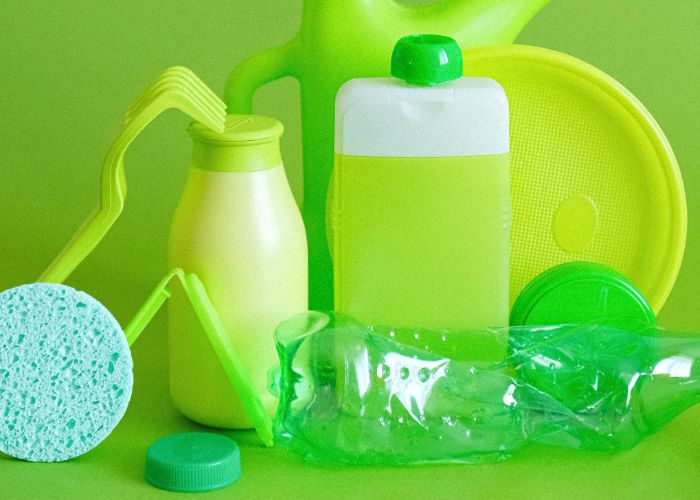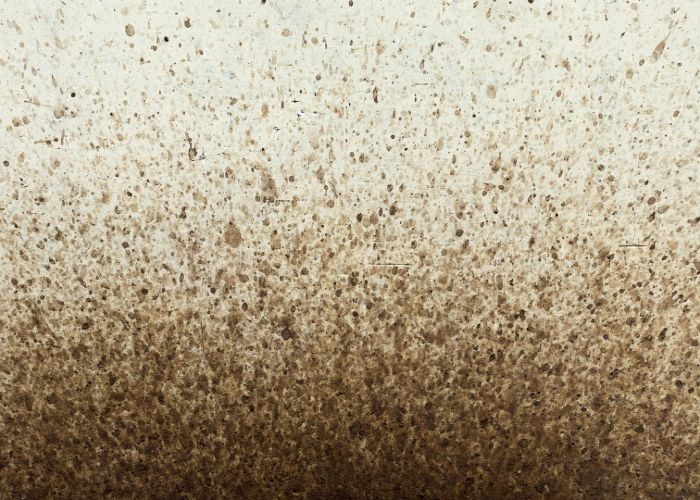Every homeowner with a pool should know how to pressure wash a pool cage, to ensure your outdoor space is clean and pristine and ready for relaxing or entertaining. Property owners should also ensure a pool cage or enclosure is always unobstructed, so you can see into the pool quickly and be alerted to children, pets, or anything else that doesn’t belong there!
To pressure wash a pool cage, start with plain water or use a mild dish detergent diluted in water and light pressure. An outdoor brush can help scrub away tough stains and caked-on dirt and debris, while soft wash pressure washing is an excellent choice for thorough cleaning without damaging glass or mesh enclosures.
Since it’s vital that homeowners keep pool enclosures clean and damage-free, but you don’t want soapy rinse water to end up in your pool, check out some tips for how to pressure wash a pool cage quickly and easily. As always, call a pressure washing contractor near you for added services, including thorough cleaning you can’t get with a garden hose or rented equipment, and needed pool deck or other outdoor pressure washing.
What Is the Best Way to Pressure Wash a Pool Cage?

Glass and mesh pool cages might need a few different cleaning steps while aluminum especially needs a gentle touch. Check out how to ensure all these materials are sparkling clean!
How to wash a glass pool enclosure
Glass pool enclosures should be cleaned like any other exterior glass. Start with a low-pressure rinse, to remove dirt, dust, mud, and other debris. You can then use a glass cleaner mixture meant to attach to garden hose, and saturate any remaining dirt.
Before the glass can dry, use a squeegee to pull that dirt and water off, wiping down the squeegee blade with each pass. If the squeegee doesn’t get rid of stubborn dirt and mud, saturate that area again and use a scrub brush meant for outdoor glass. If you can’t find an outdoor glass scrubbing brush, use a microfiber cloth mop.
Once the glass is clean, use plain water to remove any leftover debris. It’s also helpful to wipe away the rinse water with a clean, dry squeegee, to help avoid streaking and ensure a thorough washing.
How to wash a screen pool enclosure
Spraying down a screen pool enclosure can help loosen and remove dirt, dust, and other grime, but is often inefficient for a thorough clean. To clean a mesh or screen pool enclosure, use diluted dish soap in water or a cleaning mixture meant for outdoor screens, and saturate the mesh.
Next, you’ll want to invest in a good outdoor scrub brush as a mop won’t work for a screen! Scrub in different directions as you work, cleaning small sections from top to bottom then left to right, to loosen and remove as much dirt and mud as possible.
Rinse the screens thoroughly and repeat this process if needed. Once the screens are rinsed, you’ll want to snap or tap them, to shake some water off and allow added airflow through the screen. This will help reduce the risk of corrosion and allow the screens to dry more readily.
How to wash an aluminum pool cage
Aluminum is very different from other metals, as it’s softer and easier to scratch, etch, dent, and otherwise damage during cleaning, even when using lightweight tools and techniques. To clean aluminum without damage, keep yourself several feet back as you work so you don’t dent any area, and use a cleanser meant for aluminum in particular, to avoid corrosion.
Soak the screen thoroughly and then apply your detergent mixture according to package directions. Next, use a soft-bristled outdoor brush or microfiber cloth, and clean the screens in circular motions, ensuring you don’t apply too much pressure as you work. Rinse the area thoroughly, again keeping yourself several feet back from the screen.
If this doesn’t get the screens cleaned properly, call a power washing contractor near you and schedule soft wash power washing services. Soft wash cleaning is preferred for aluminum and other softer surfaces, to avoid scratching, denting, and similar damage.
How Do I Get Green Algae Off My Screen Enclosure?

Hot water or high-pressure washing with plain water is often sufficient for removing mold, mildew, and algae from pool screens and other enclosures. If this isn’t enough for cleaning these contaminants from your home’s pool cage, create a mixture of one cup bleach in one gallon warm water; before applying to the pool enclosure, water nearby plants thoroughly. Overly moist soil will help repel the bleach mixture from around those plants, keeping them safe.
Use a garden hose attachment to spray this bleach-water mixture onto the screens and scrub away at the algae, mold, or other such debris. Ensure you rinse thoroughly and even more than you think is needed, so that there is no trace of the bleach left on the screen.
Is Vinegar or Bleach Better for Killing Mold?
Bleach and vinegar both kill mold, algae, and other contaminants; however, many homeowners hate that lingering bleach smell around their pool, and especially since the air might already smell like chlorine! For those especially sensitive to bleach smells, use a 50-50 white vinegar and water solution instead of bleach.

Once applied, allow this mixture to soak for several minutes on the mold or other debris before scrubbing. Rinse thoroughly and ensure you don’t leave anything behind. While that vinegar smell might also be a bit bothersome, note that it does dissipate faster than bleach smells, so rest assured that your pool enclosure will be comfortable for use before too long.
When to Pressure Wash a Pool Cage
Homeowners might consider regular pressure washing for pool cages even if you attempt DIY cleaning. Professional power washing ensures a thorough clean, removing not just visible dirt and mud but also pollen, air pollution residues, soot, and other debris often overlooked by DIY cleaning. Removing debris such as pollen and dried dust ensures a cleaner outdoor environment, which is especially important for those with allergies, asthma, and other sensitivities.
Pressure washing is also an excellent choice if you’ve neglected regular cleaning and maintenance of the pool cage. Scrubbing thick, dried-on dirt, dust, and other debris can scratch and etch glass or mesh screens, pushing that debris deeper into those surfaces. You might find that trying to clean thick dirt and mud with a garden hose only creates unsightly, muddy streaks!

Soft wash power washing is an excellent choice for neglected pool cages. Soft wash cleaning starts with a lightweight detergent that dissolves this dirt and grime, while also killing mold and mildew. Once dissolved, your soft wash pressure washing contractor only needs a low-pressure rinse to clean everything away.
Many homeowners also prefer professional power washing and especially soft wash systems as these are good choices for cleaning away unpleasant debris, such as dead insects and bird droppings. Your home’s pool cage might keep out lots of bothersome insects but that can also mean that they then wind up stuck to the screens around the pool! Professional pressure washing ensures debris and rinse water doesn’t end up in your pool while also providing a thorough clean that lasts.
What’s the Difference Between Power Washing and Pressure Washing?
When you call an exterior cleaning contractor, they might recommend power washing versus standard pressure washing, or you might be asked which machine you need when you visit a local rental center. Knowing the difference between the two processes ensures you make the best choice or understand why one is recommended over the other!
Pressure washing refers to any process involving pressurized water. Even if you attach a nozzle to the end of a garden hose, you are then pressure washing a surface or material.
While pressure washing uses room-temperature water, power washing uses heated water. Power washing equipment will have a heating coil and typically a storage tank, for heating water and storing it as it’s used, just like your water heater at home.

Power washing with hot water is best for oily and greasy stains, as hot water breaks down oil, grease, and lubricants. Hot water can also loosen chewing gum and anything else stuck to outside surfaces, while making quick work of dissolving thick mud and other grime.
Using power washing for certain tough cleaning jobs doesn’t mean it’s the best choice for your property! Hot water might damage rubber surfaces and peel away paint and other coatings. Some detergents are designed for use with cooler water, as hot water might dissolve those cleansers too quickly.
If your pool cage is coated with thick debris or you notice oily stains or other residues that need some added attention, call a pressure washing contractor and ask about soft wash systems! The detergents used for soft wash cleaning dissolve even the thickest, toughest dirt and grime, making quick work of the thorough cleaning you need to have done.
When Should I Pressure Wash My House?
When scheduling pool cage power washing, you might note why it’s good to have your contractor power wash the home’s exterior walls, roof, gutters, pool deck, and other spaces as well! Regular, professional washing keeps the space clean and pristine and in good condition while also improving curb appeal instantly:
Exterior wall washing
Your home’s walls are often coated with dirt, mud, grass clippings, air pollution residues, and other unsightly debris. If you cook outdoors, certain walls might also have dingy soot or smoke stains near the patio or barbecue. Many homeowners don’t even realize how dirty their home’s exterior is until it’s washed properly!
Pressure washing also removes dried dust, pollen, mold, and other debris bothersome to your sinuses, for cleaner outdoor air quality. Scheduling exterior wall washing at the same time as pool cage cleaning can mean an enjoyable environment, perfect for relaxing.
Roof washing
Along with all the same dirt and air pollution residues you’ll find clinging to your home’s exterior walls, roofs are also prone to holding soot from cars and planes, bird droppings, mold, and algae, all of which dry out shingles and tiles. Regular roof pressure washing removes that debris, keeping the roof looking its best while also protecting it from premature damage.
Gutter cleaning
Gutters perform a vital function for your property, catching rainwater and melting snow and then directing that water to nearby downspouts, which point it away from the home! When gutters clog, rainwater washes over their sides and down exterior walls, damaging brick and siding, and then pools around the foundation, leading to even more water damage.
Cleaning your home’s gutters is probably everyone’s least favorite chore, but it’s vital for protecting your house. Professional power washing cleans away dirt, mud, sand, silt, and storm debris, keeping gutters clean and bright and functioning as they should.
Pool deck cleaning
When you schedule pool cage cleaning, it’s probably time to consider pool deck cleaning a well! Pool decks are often coated with sand, silt, dirt, mud, and other debris, creating a slick surface unsafe for foot traffic. Concrete, stone, and other materials also trap pollen and dust, irritating your sinuses and triggering allergic reactions!
Professional pool deck cleaning not only removes those unsightly and bothersome residues but it also creates a safe surface around your pool. Pool deck materials also last longer and need less repair and replacing over the years when you schedule regular cleaning.
Paver cleaning and sealing
One excellent means of protecting paver stones outside your property is with professional cleaning and sealing. Washing away dirt and grit protects those stones from etching and other damage while sealing provides an added layer of protection against harsh weather, automotive fluids, and other corrosive materials.
Scheduling these added services when it’s time to pressure wash a pool cage keeps your property looking pristine while also protecting surfaces from damage. You can then enjoy your pool or entertain friends, knowing your outdoor space is welcoming and inviting for everyone.
Jupiter Pressure Washing Services is proud to offer this information to our readers and we hope it helped you understand how to pressure wash a pool cage or enclosure properly. If you need pressure washing service in the Jupiter area, give us a call! Our Jupiter pressure washing contractors have over 20 years of experience and we guarantee all our work to last. For your FREE quote, give us a call today.


